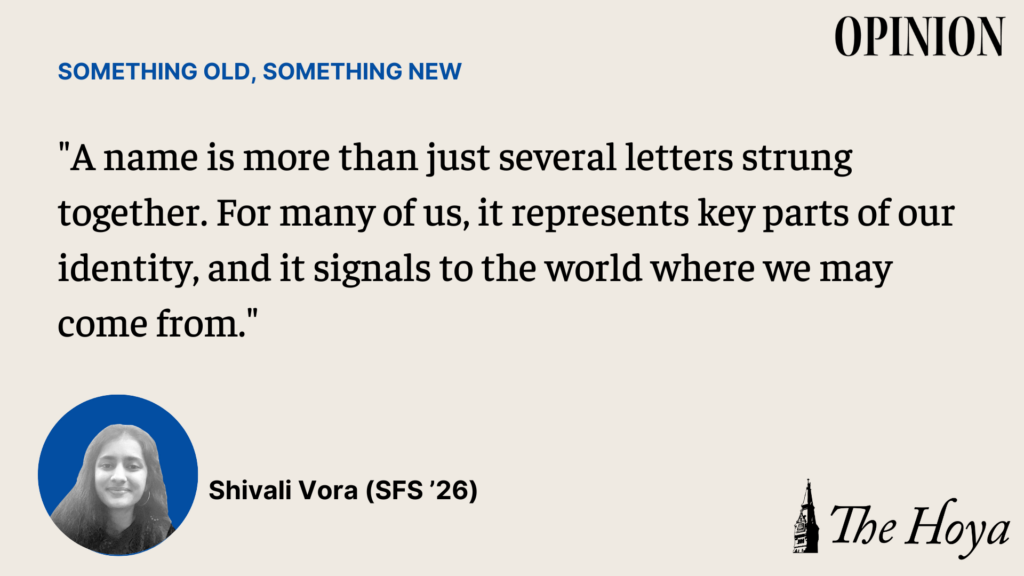According to Shakespeare, that which we call a rose by any other name would smell as sweet. But according to social scientists, names are more consequential than that.
As kids, many of us were showered with rose-tinted platitudes like “You can become anything you want to be if you work hard enough.” While these promises come from a good place, they are, unfortunately, overly optimistic. The circumstances into which people are born are often reflected in their names, which can then affect their socioeconomic outcomes as adults.
For example, Steve Levitt, the author of the bestseller “Freakonomics,” conducted an observational study with fellow economist Roland Fryer in which they followed the lives of Black women born in the 1970s, given either names more commonly associated with the Black community (like Aaliyah and Tyrone) or names more traditionally white-associated names (like Alice and Tyler). They concluded that while names themselves are not strongly correlated with socioeconomic outcomes, they are correlated with one’s socioeconomic status at birth. That is what actually affects later outcomes. The data set Levitt and Fryer used showed a higher incidence of ethnic names in lower-income areas, while in wealthier neighborhoods, Black babies were more likely to be given traditionally white names. This particular analysis showed only an indirect relationship between names and success, but other studies suggest a causal connection.
One would hope things have since improved, but twenty years later in 2021, economists from the University of California, Berkeley and the University of Chicago experimentally sent out 83,000 fake resumes to over 100 Fortune 500 companies and found similar results. All variables were controlled and randomized except the name of the applicant, yet, on average, Black applicants received 21 fewer callbacks per 1,000 applications sent than white applicants.
There’s also the question of distinctive names that have no clear ethnic or cultural ties but are simply meant to raise eyebrows. Recently, as celebrities deem it increasingly fashionable to give their children unusual names without explanation — from the relatively tame Stormi to the more provocative X Æ A-XII — everyday Americans have hopped on the bandwagon. Such names, at best, can briefly spotlight the parents and can, at worst, harm the child’s future, raising the question of what the appropriate balance is between preserving traditional names and taking the road less traveled.
Millennials, and likely Gen Z as well when the time comes, are predisposed to seeking out quirky names for their children and turning up their noses at old-fashioned classics. When we eventually name the next generation, however, it might be wise to remember that the world is currently kinder to names that blend in than those that stand out.
Nevertheless, realism and idealism are not mutually exclusive. Alongside understanding and accepting the imperfect ways in which the world works, we can simultaneously be the ones to catalyze change by embracing the diversity of names and rooting out subconscious prejudice — whether that’s through advocating for name-blind club applications here at Georgetown University or checking our own biases when we reach positions of power in the workforce.
A name is more than just several letters strung together. For many of us, it represents key parts of our identity, and it signals to the world where we may come from. I’ve been thinking about the implications of identity — and by extension, names — more than usual lately as I apply to clubs on campus.
Georgetown is infamous for its cutthroat club culture, a precursor to the even more grueling job search later down the road. The ever-increasing competitiveness in the labor market is essentially a product of too many talented people vying for too few coveted positions, and to expedite the process of narrowing down such large pools, preconceived notions based on initial impressions — one’s name being the first — creep in.
My own name, Shivali, has deep cultural and religious roots. It’s another name for the Hindu goddess Parvati (literally “beloved of Shiva”). But it’s also fairly uncommon: variants like Shivani are far more prevalent and readily recognizable.
When I was younger, I strongly disliked my name, frequently half-joking that I’d have it changed to Shivani. Now, I realize that my parents gave me the best of both worlds: something old and something (relatively) new. It may not roll off the tongue as easily, but I’ll take that trade.
Shivali Vora is a first-year student in the School of Foreign Service. Something Old, Something New is published every third Friday.














